Let’s Celebrate Reading!
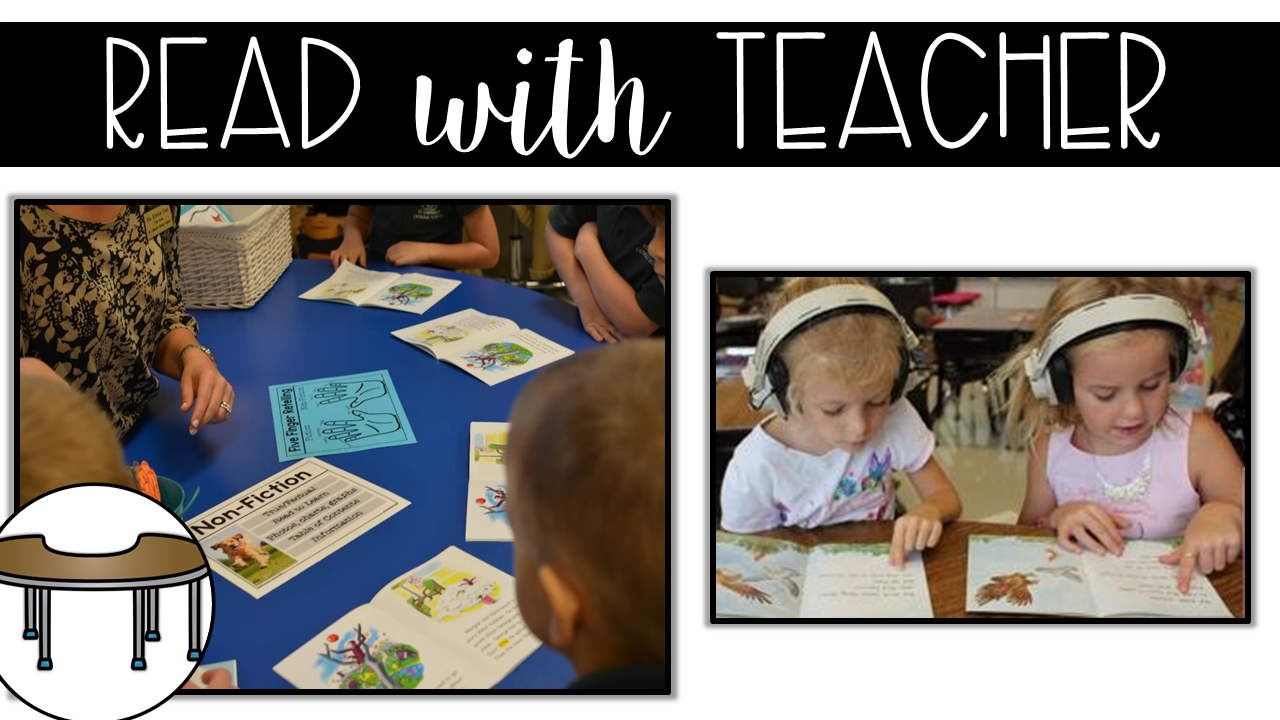
To celebrate reading this week, I’m sharing my set up for ELAR. This system is flexible and ever-changing, but the basic structure remains the same year to year which has allowed my own growth as well as the ability for my students to go from dependence on the teacher to independence!
In the picture below, the boxes on the bookshelf contain all of the centers for guided reading rotations as well as the writing center activities. This was right after a major summer organization frenzy. The pink and green drawers below hold the materials for each group. Their books, their vocabulary, sight word materials, games, centers etc. Anything specific to that particular group. I keep it straight by high drawer being high group middle drawer being middle group and low drawer being low group.
Clearly this photo was taken before students ever entered the room on day 1 🙂
Let’s Celebrate Reading
The over-arching management system I use is the acronym, LEARN to read. Each letter in the word LEARN stands for a station activity that students visit daily. Students can also rotation through LEARN over the course of a week rather than daily if your schedule doesn’t allow for a large block of time at once. This management system provides the MUCH needed structure to our rotations. It keeps us all on track, providing a sense of urgency without stress. I can always adjust the time if I notice that our pacing is not able to keep up or if we are finding ourselves with too much time left over.
I use a projector to display our rounds, but a pocket chart works just the same.I have the guided reading rotations projected and set to a timer. It takes all the management off of me! The Guided Reading Rotation Timer System that I use has both the wall chart and the projectable pre-programmed timers! What’s awesome is you can adjust the number of rounds and length of time! The students rotate through a series of activities that repeat every day. In our room we do all 5 rotations for 15 minutes every day. The students know that they have an allotted time to work at each rotation and it is unwavering in its faithfulness. Students quickly learn the pacing of our rotations and adjust. The reading timer makes a sound and students see the new station projected
Learn to Read Rotation Timers and Wall Chart
L is for Listen to Reading
First up, is L for Listen to Reading. Students go to the computer to listen to stories, and answer comprehension questions. This can be done through a school-wide program you have such as accelerated reader or other. I used to have the tape player, or CD player, or nano device to play the stories, but now I keep it to our classroom computers using Raz Kids, or even apps on a tablet.
E is for Enjoy a Book
This rotation is all about getting in leveled reading practice! Students have a book box and can shop for books in our leveled library. They can read to self or read with a friend. Students simply read for enjoyment. They can read a book from their book box. The library area also has a few other extra Enjoy a Book activities. These are Flipping for Phonics practice, Sight words and fluency phrases booklets, and Phonics Binder practice. I used the scholastic wizard app one summer to level my student library.
Below are close-up pictures of the items my students can also do while at Enjoy a Book.
Phonics Binder Practice
Word Family Booklets
Sight Word Booklets
Flipping for Phonics booklets
A is for Attention to Writing
At the writing table, students either edit and analyze writing, or create their own! I have a station next to the writing table with a variety of writing paper and materials. I do keep a structure to the writing center. Some days students have activities directly aligned to our writer’s workshop lessons, and other days students are able to do creative writing. This variety and structure keeps this center engaging. Students don’t have a chance to get into a writing rut because they are constantly being challenged and inspired.
The resources I use for Attention to writing are:
Engaging Writing Activities
R is for Read with Teacher
We are all on our reading journey together, but our reading group is a safe place where we take risks and learn together! The small group reading table is a place where we tackle reading strategies for decoding, fluency, practice with new texts, and comprehension just to name a few! It definitely requires a lot of time and effort which is why I took the time to develop monthly Lit Kits to cover all of my guided reading needs!
Guided Reading Table Lesson Plan Breakdown
Below, you’ll find my lesson plan breakdown. Each group has unique needs of course, but this is the general structure to my small group lessons.
Below are visuals of what each component looks like in action! It always helps to peek into someone else’s classroom! I hope this helps! All of the resources pictured for small group are from The Lit Kit. The lit kits are monthly units PACKED with hundreds of activities for small group and stations.
N is for New Words
The new words station is all about our spelling and phonics focus for the week! Each week I fill up a Sterilite 5 drawer tower of focused phonics and spelling activities for our pattern of the week. Students work through the activities during the new words rotation.
Below you can see the sterilite drawer system which holds the week’s activities. Students can truly apply the spelling and phonics pattern of the week as they work through the activities each day.
Variety is key here! Students have an opportunity to do a variety of activities with the new pattern. All of these come from my Big Phonics Bundle. It has all of the phonics patterns for the entire year along with all of the cards and activities. It’s also available by each pattern. The Lit Kits I linked above also have phonics activities that I use for this station as well. It helps provide that fun variety!
The Big Phonics Bundle
Introducing Spelling and Phonics Each Week
Below is a visual of how I introduce our pattern of the week. Each week, I follow the same format to introduce our new spelling/phonics pattern. First I gather a variety of short fun videos to play that highlight our pattern. Next, I share the phonics poster anchor word and we practice reading the words that correspond to the poster. Each day we do this adding to the words and creating sentences with the words. Sometimes I dictate them as students practice spelling them on their whiteboards. We sometimes do a small part of a lit center activity from the Lit Kit on the pocket chart that they will then be able to do independently in a center. I also introduce the word cards from The Big Phonics Bundle that will stay on our pocket chart for the week.
Read and Match Pocket Chart cards from The Big Bundle of Phonics
We do 15 minute rotations most days. I have 5 groups. That’s a total of 75 minutes a day for our rotations! It’s a pretty long block so sometimes we break it up depending on my schedule that year. My phonics and spelling mini-lesson is done separately from this rotation time. So I use 90 total minutes for reading instruction over the day. I hope this helps you to continue the celebration of reading in your room!
Guided Reading Teacher Binder
The guided reading teacher binder is the organizational tool that holds all of my planning, grouping, documentation, and anecdotal notes together! It is split into sections. Planning, grouping, note-taking and documentation, and then reference! It’s everything I need for the year!
Peek at some of the pages! You can type on the pages or print them out and write on them.
So there you have it! My celebration of reading! This is how I spend my ELAR block! I hope you found it helpful!

 Contact Us
Contact Us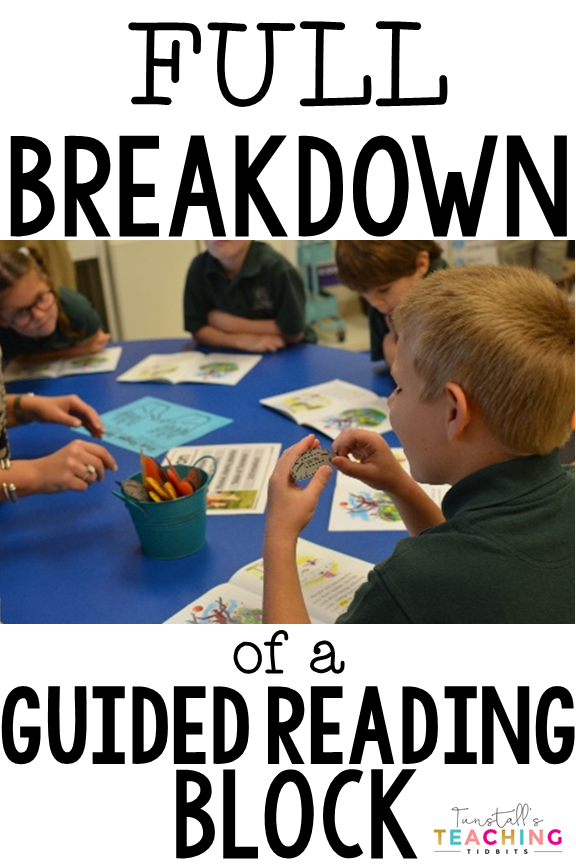
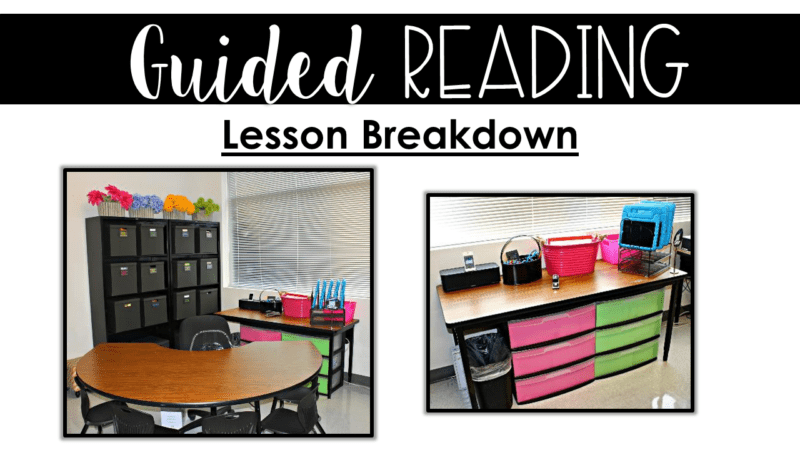
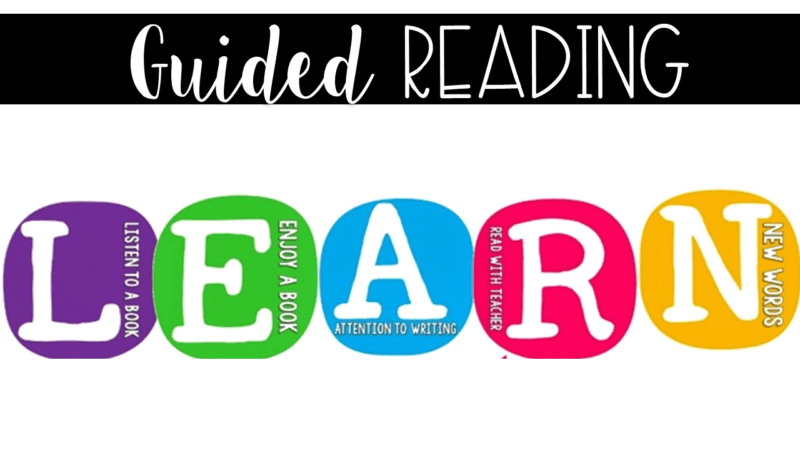
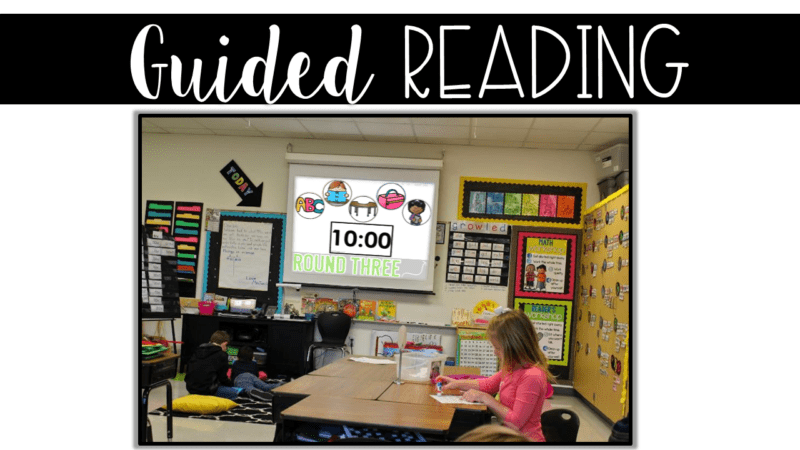
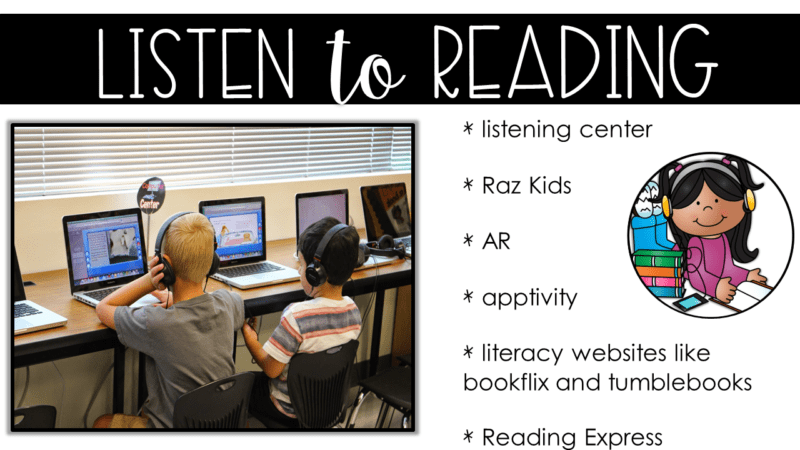
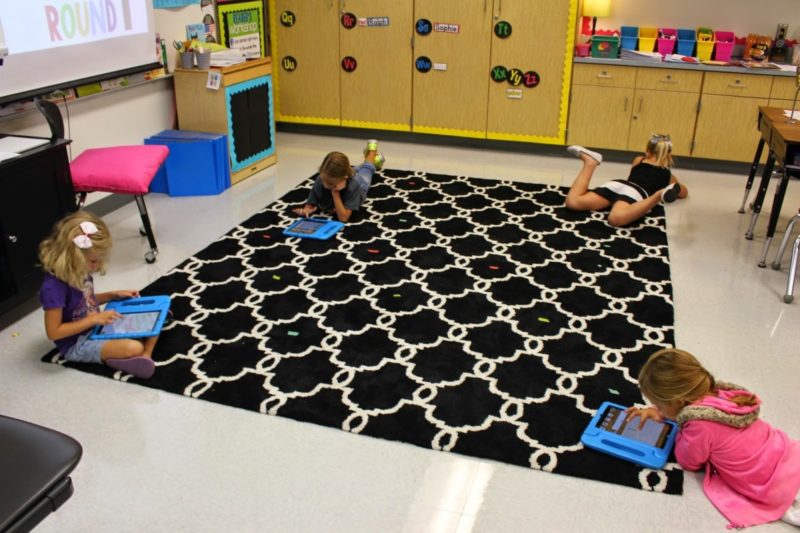
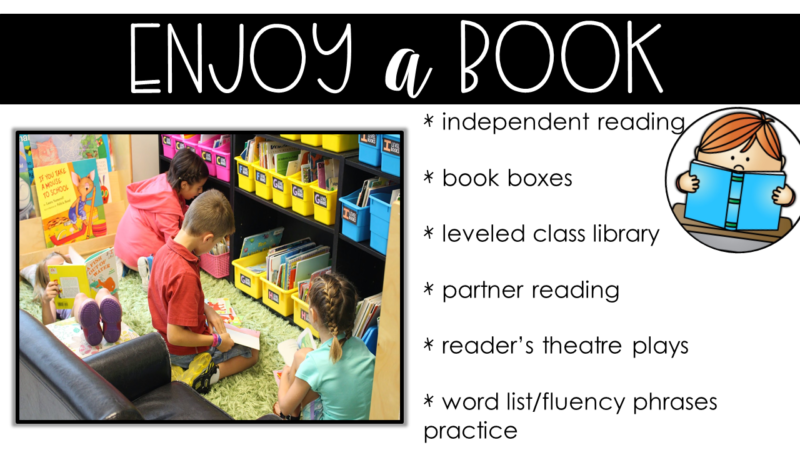
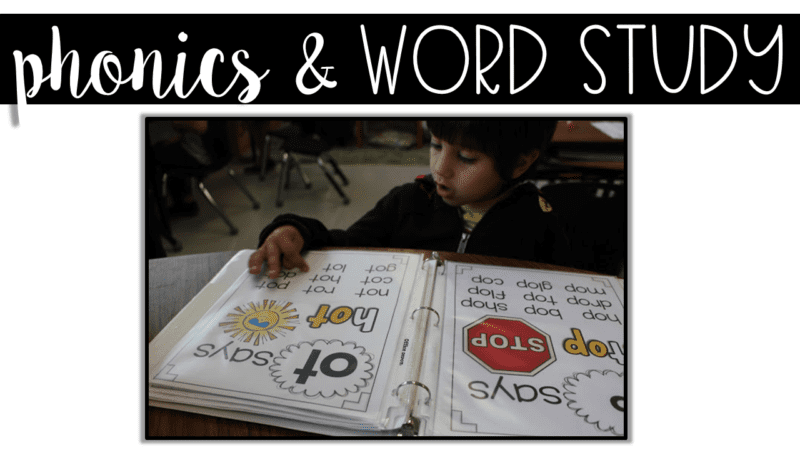
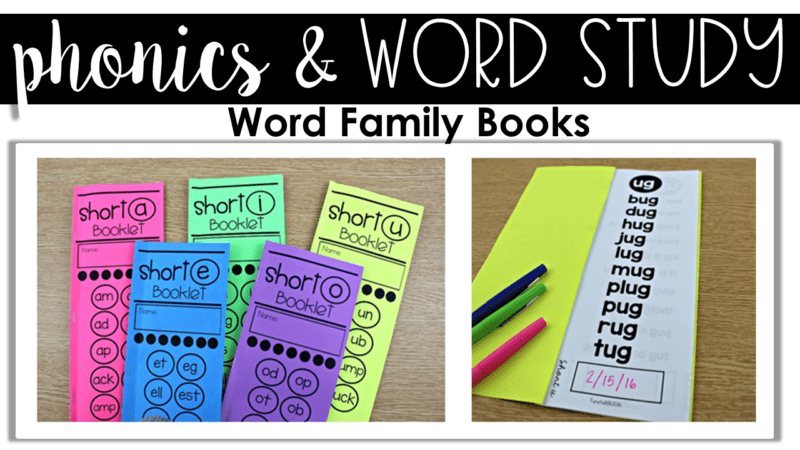
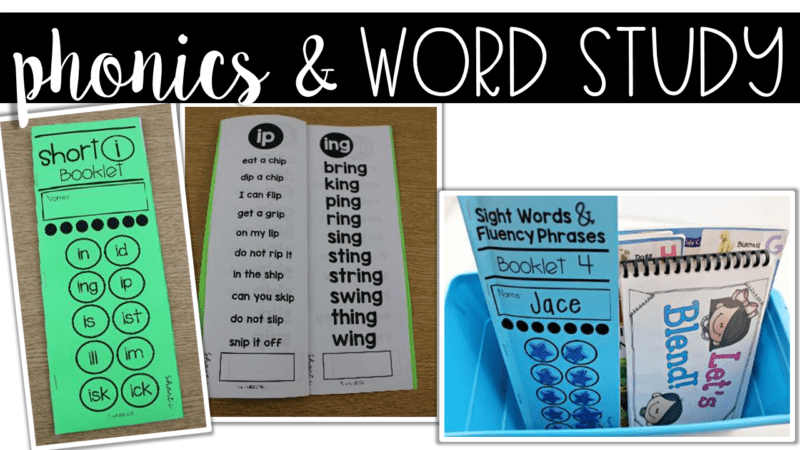
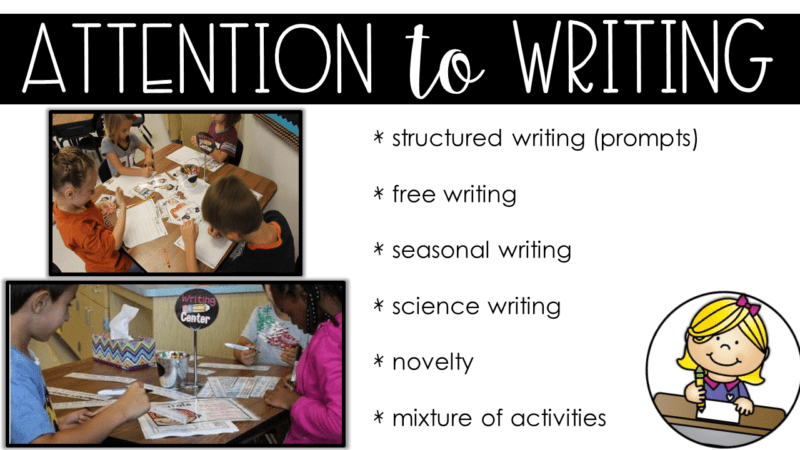
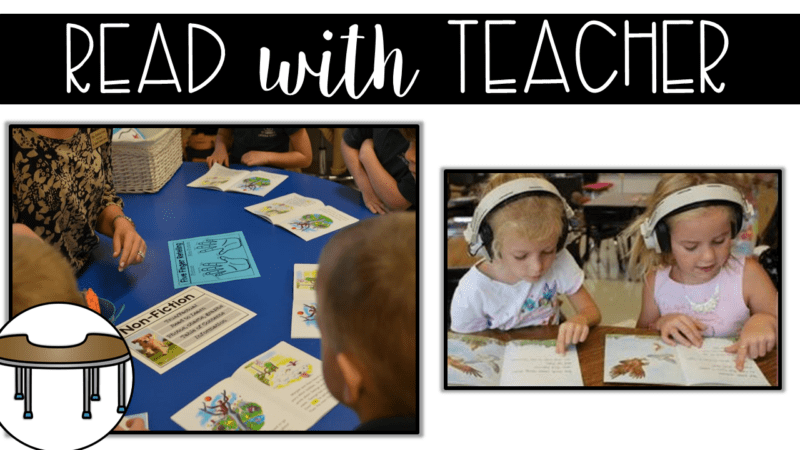
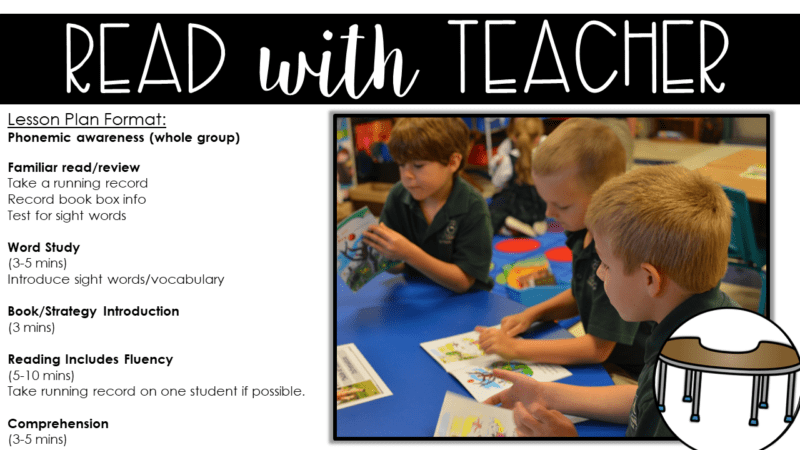
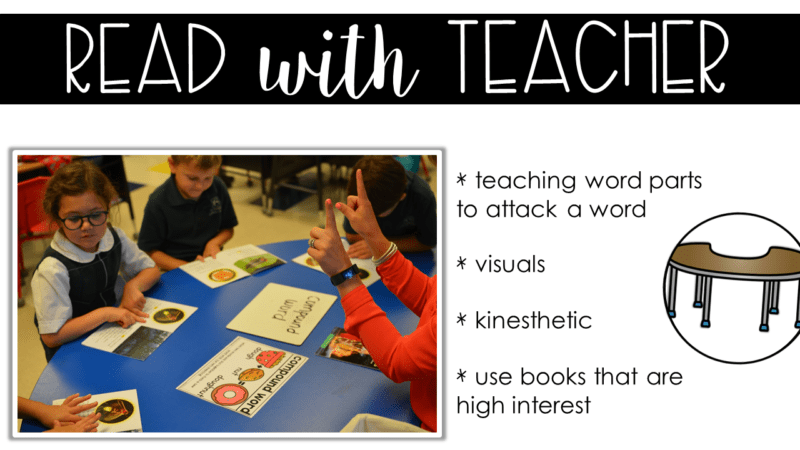
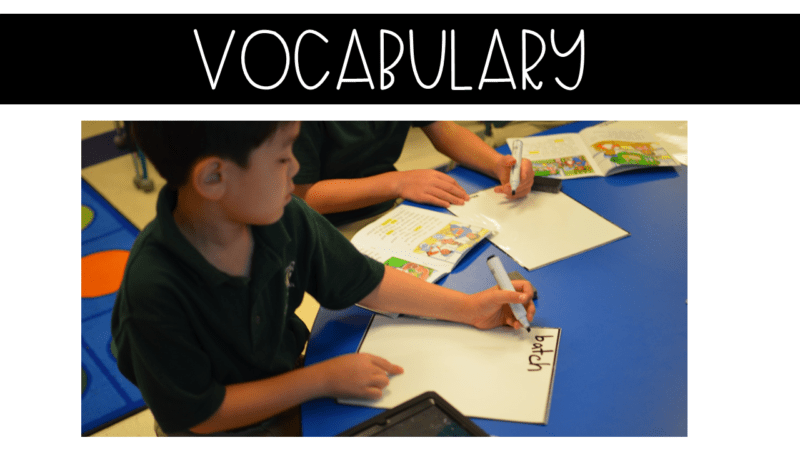
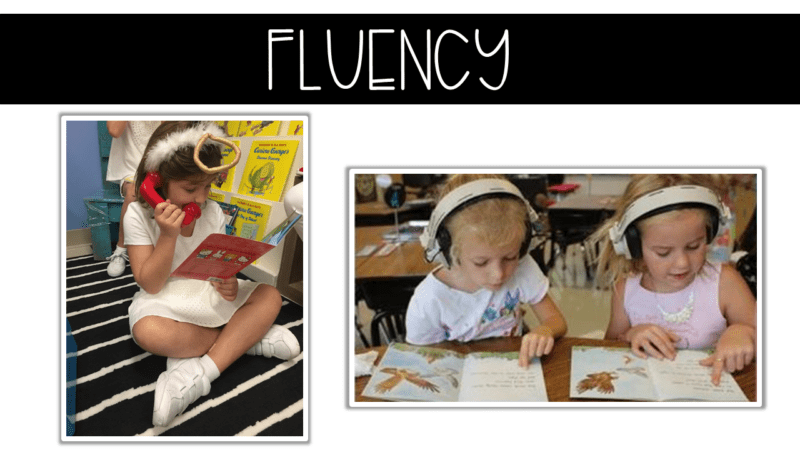
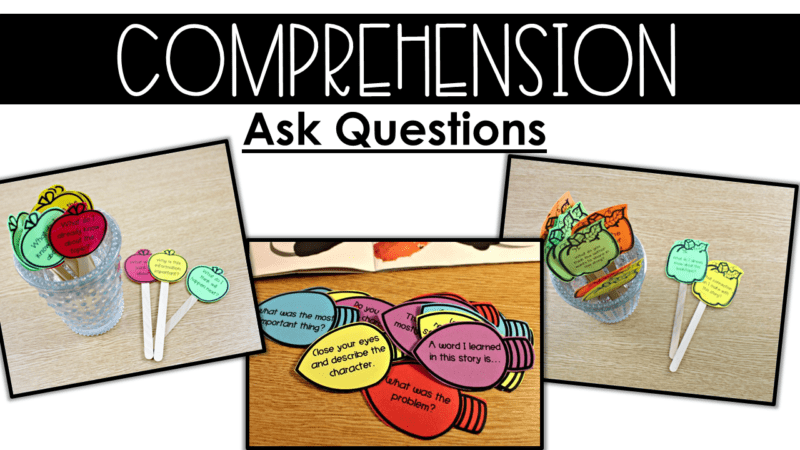
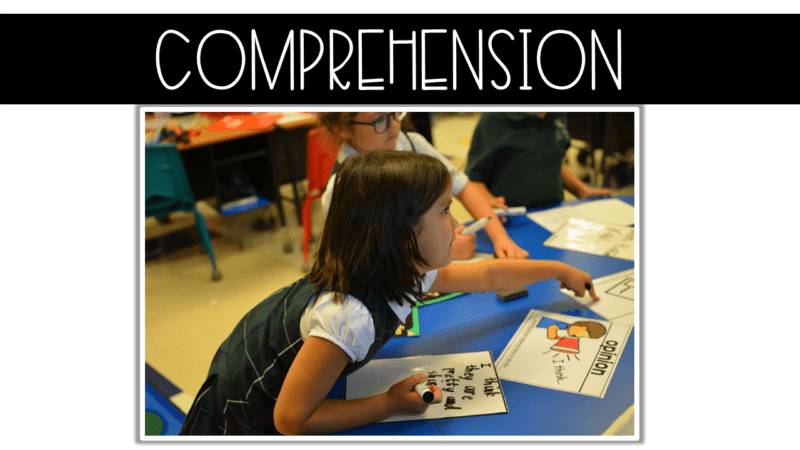
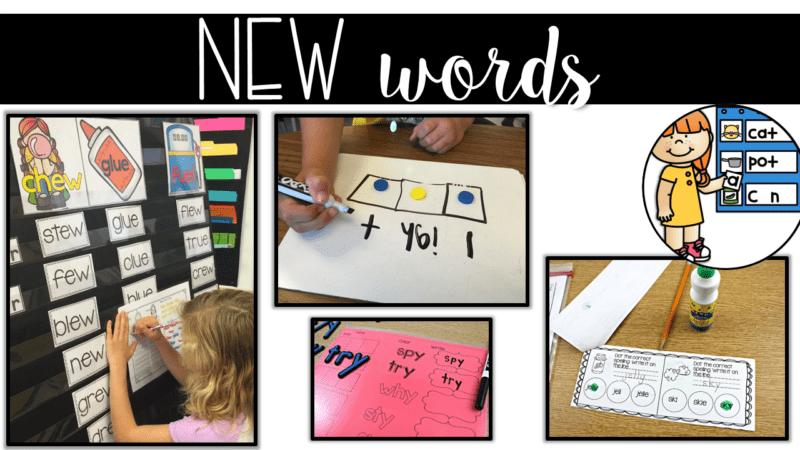
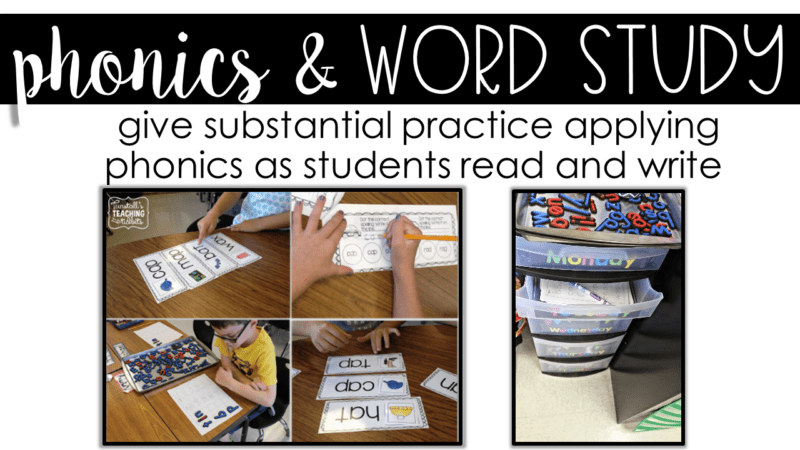
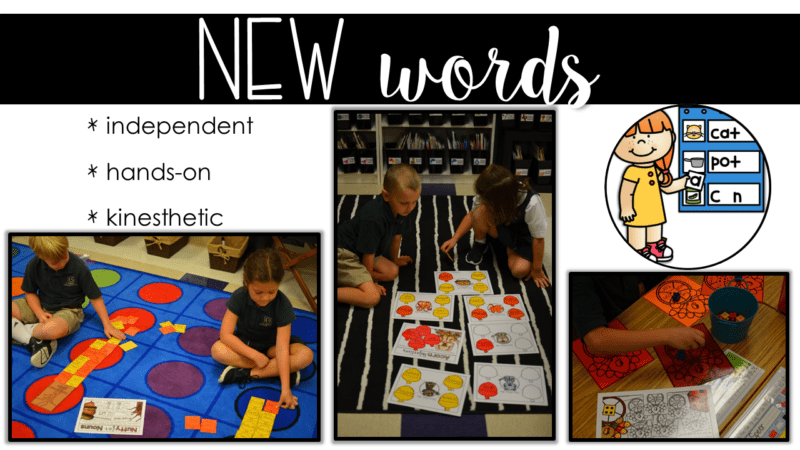
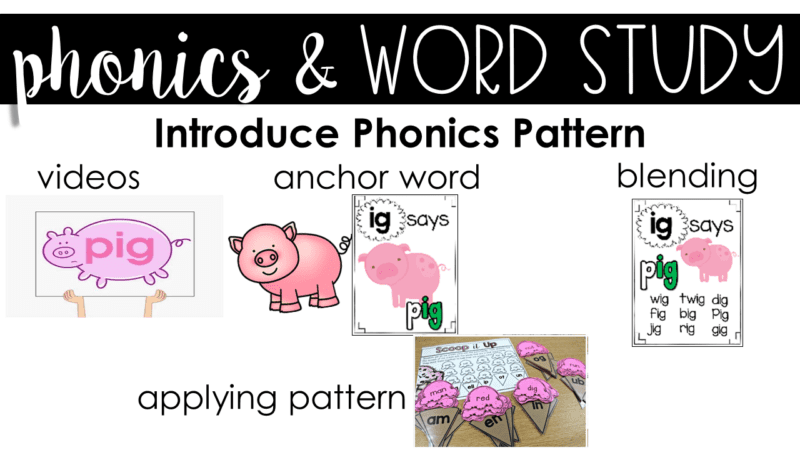
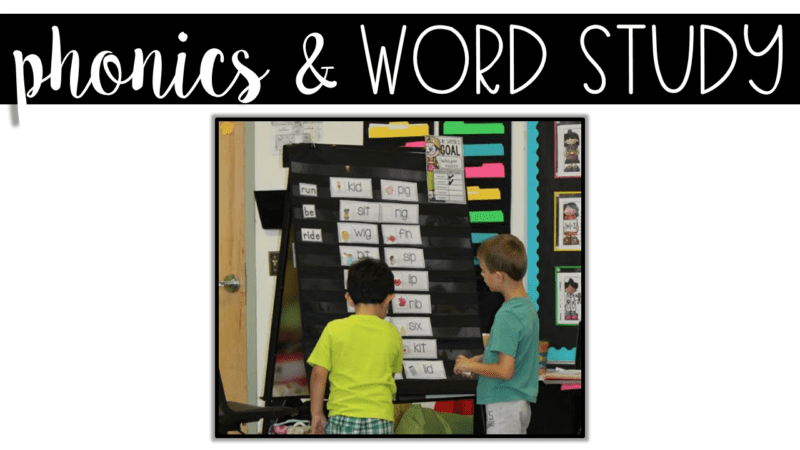
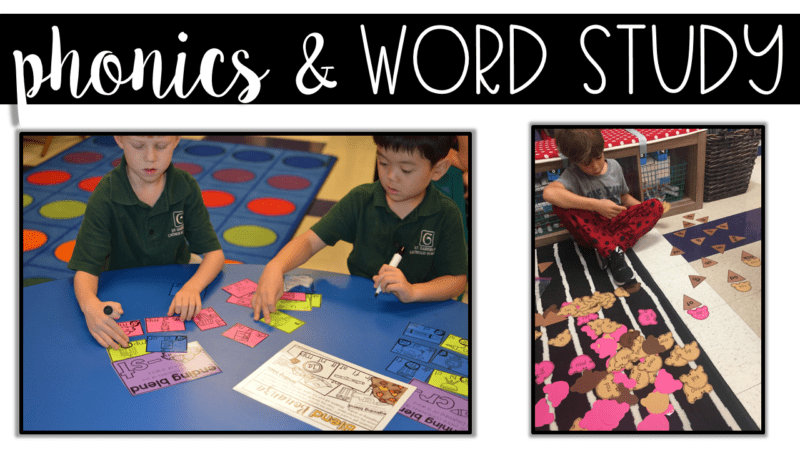
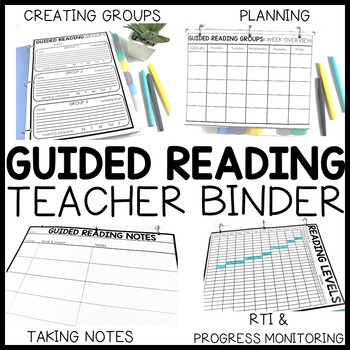
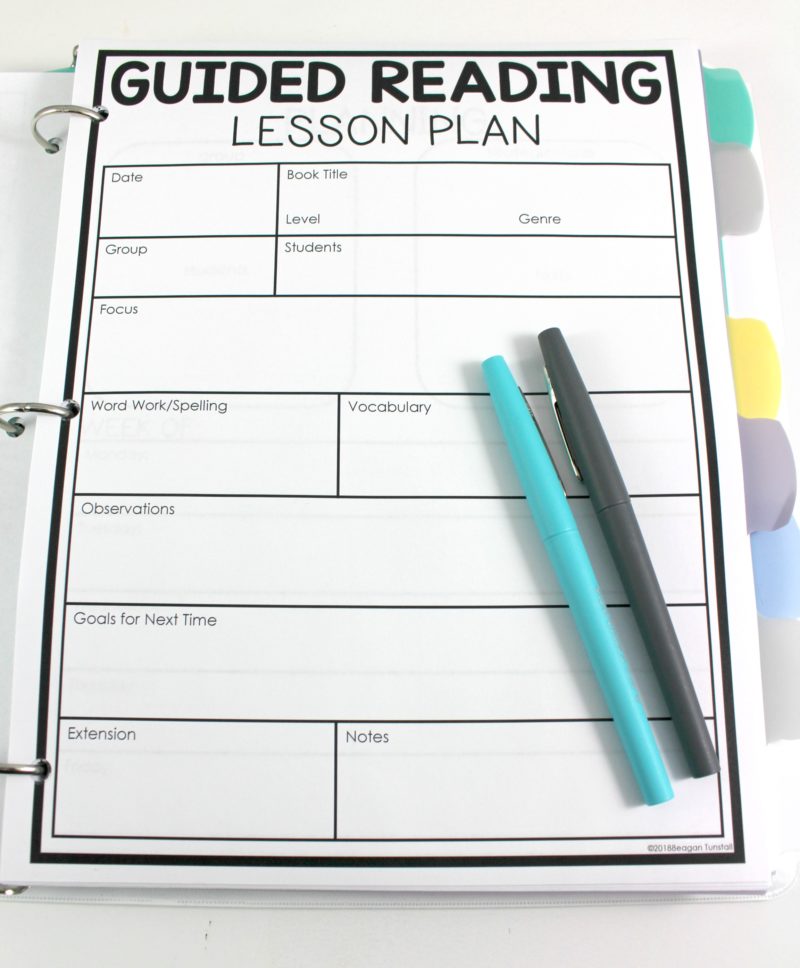
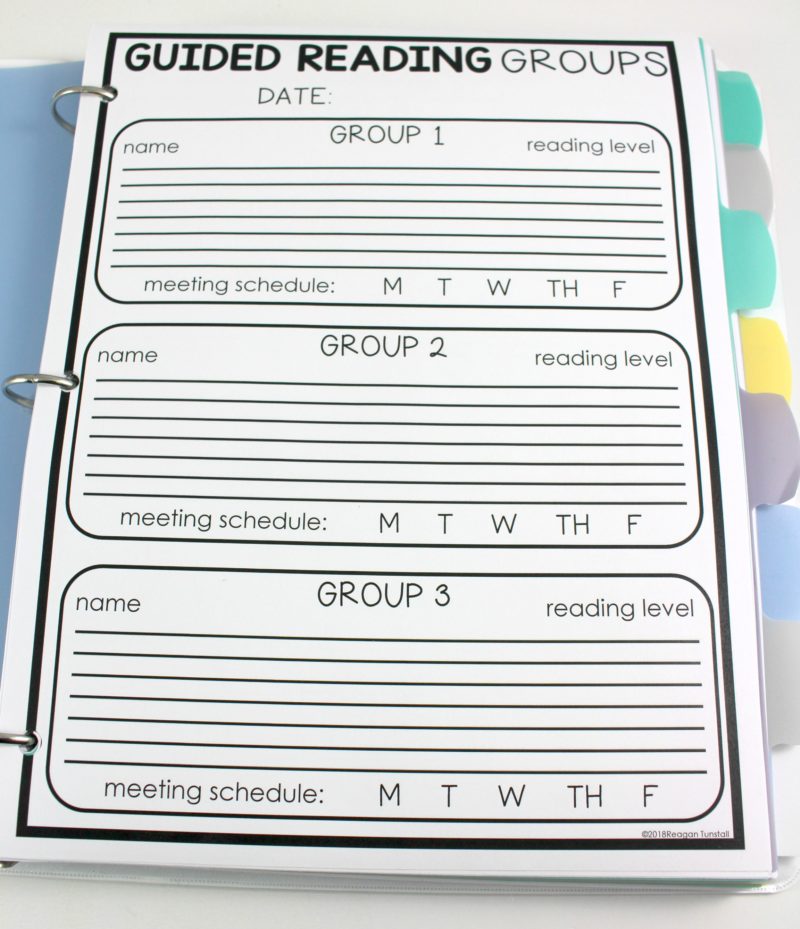
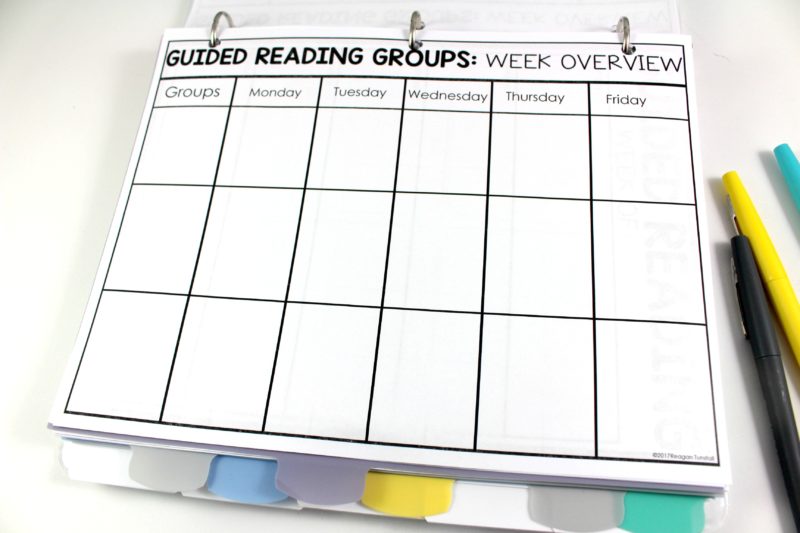
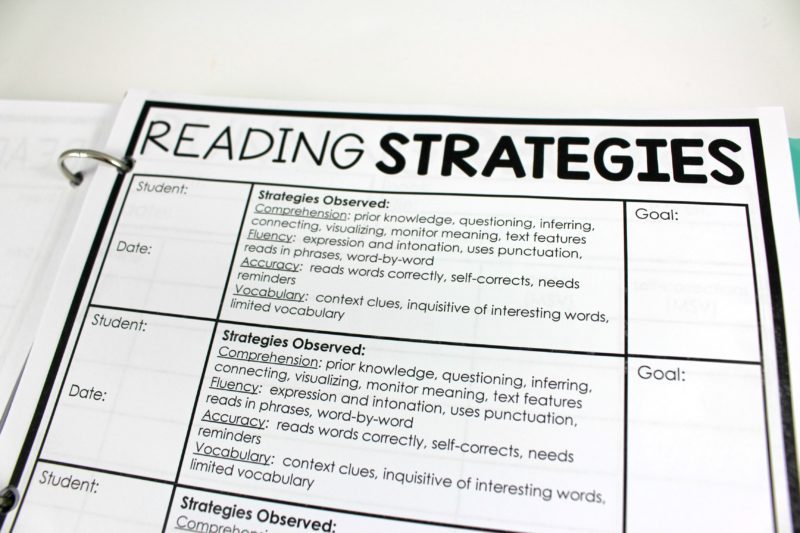
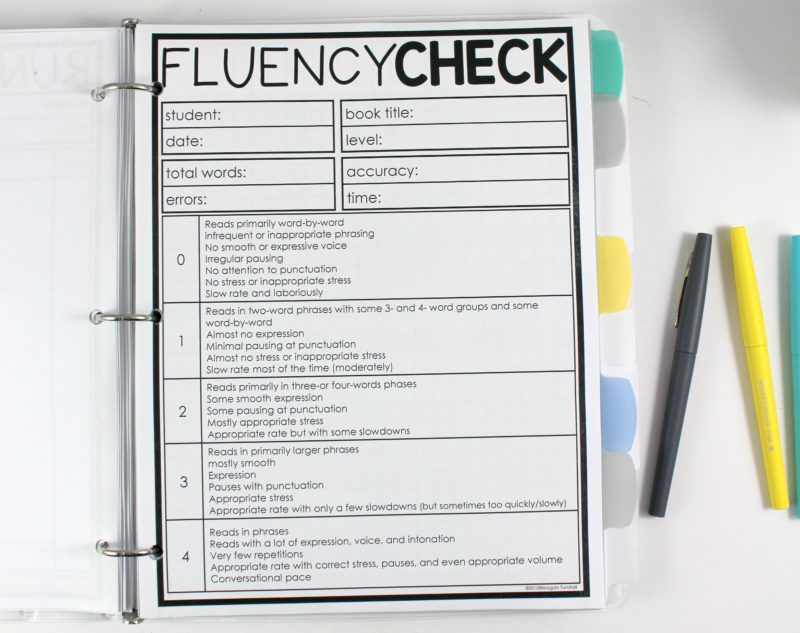
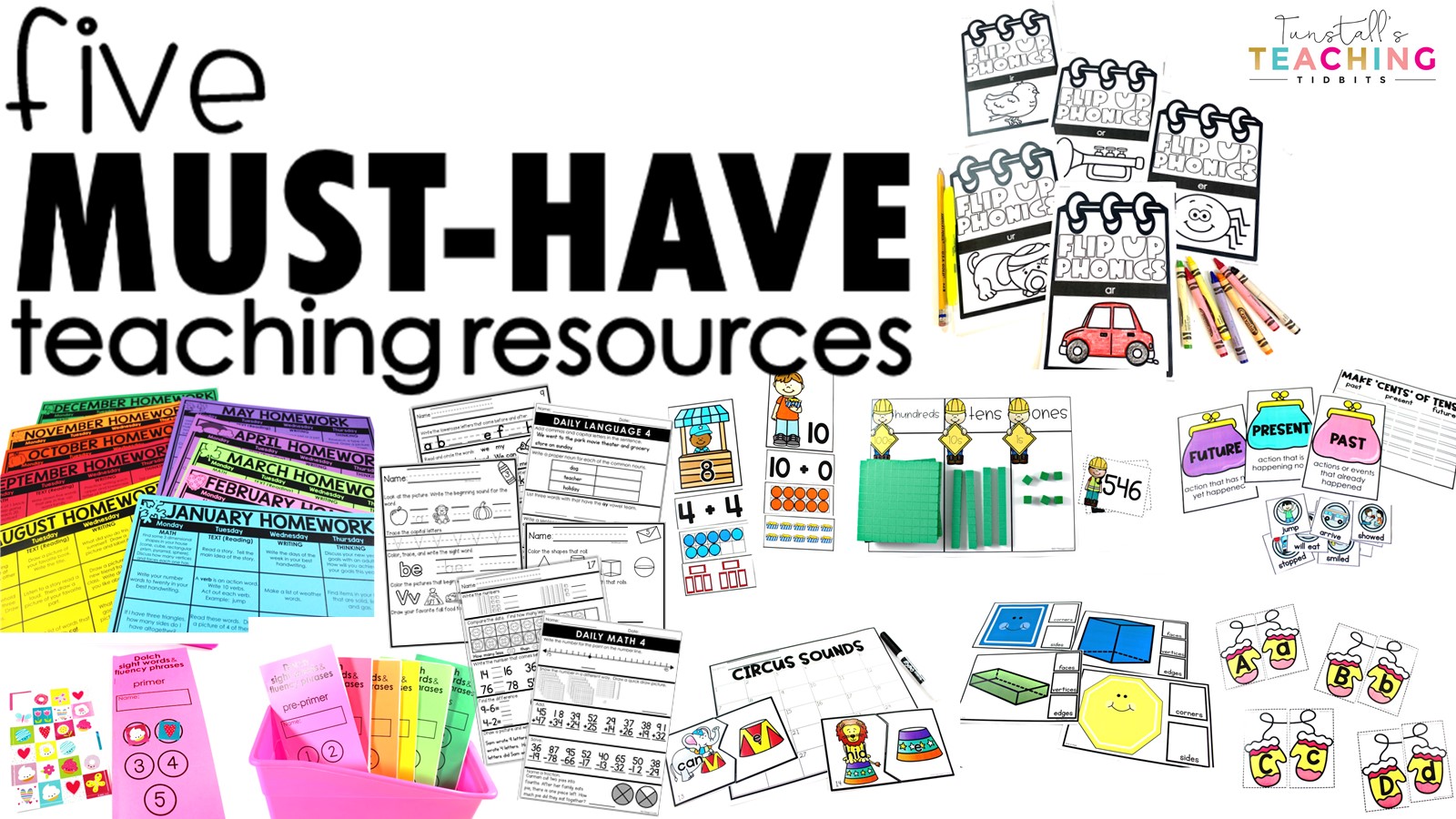
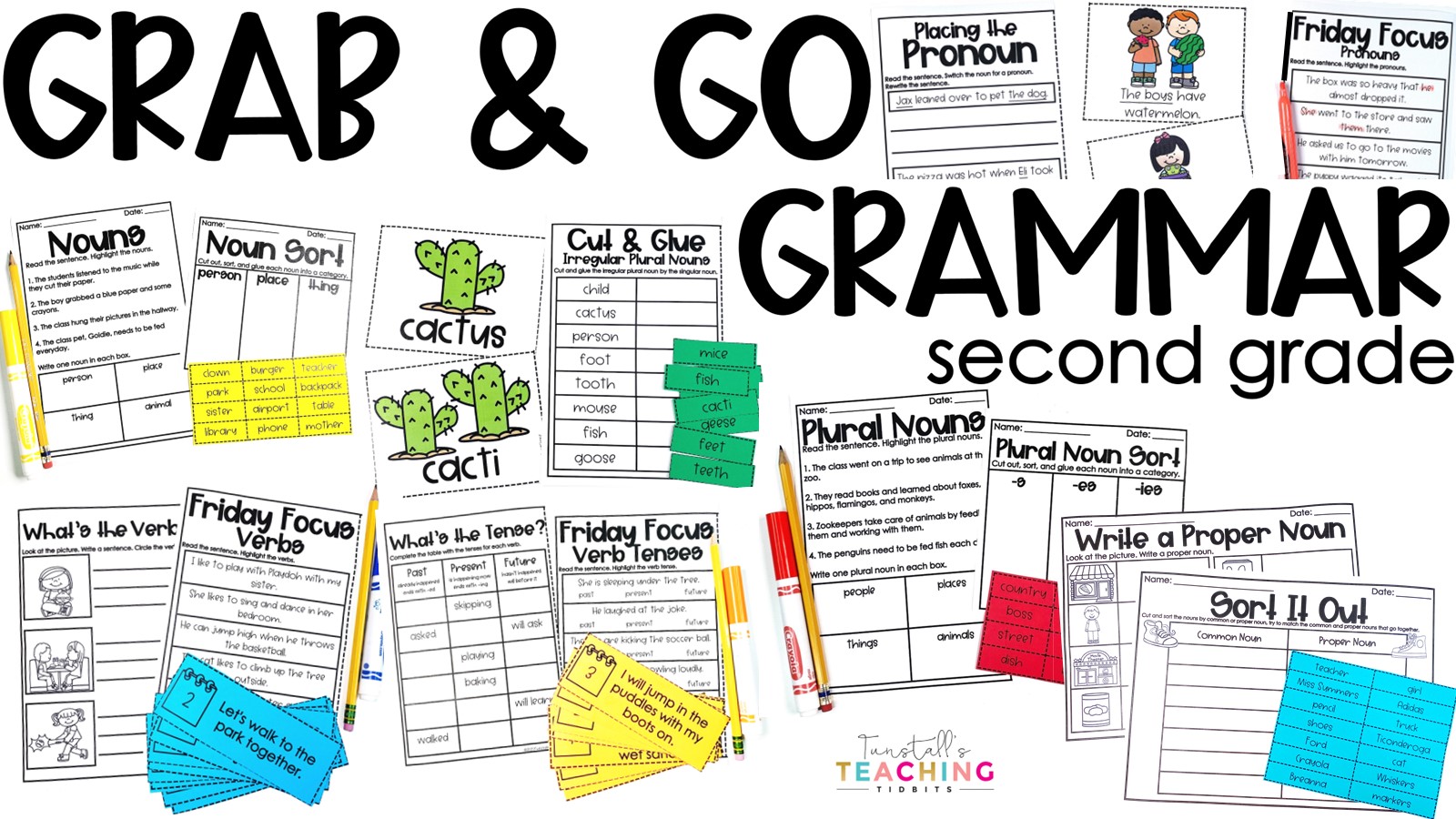
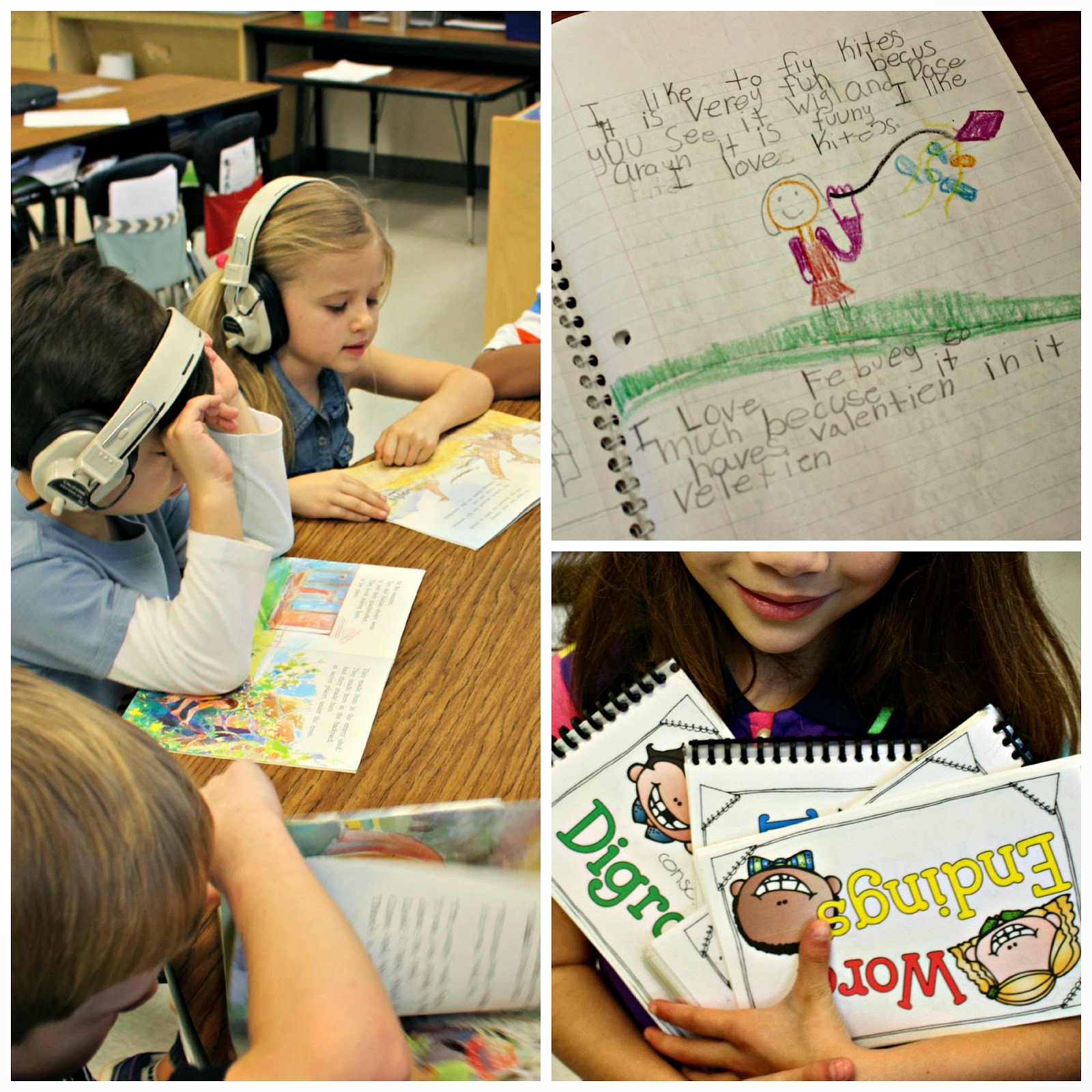
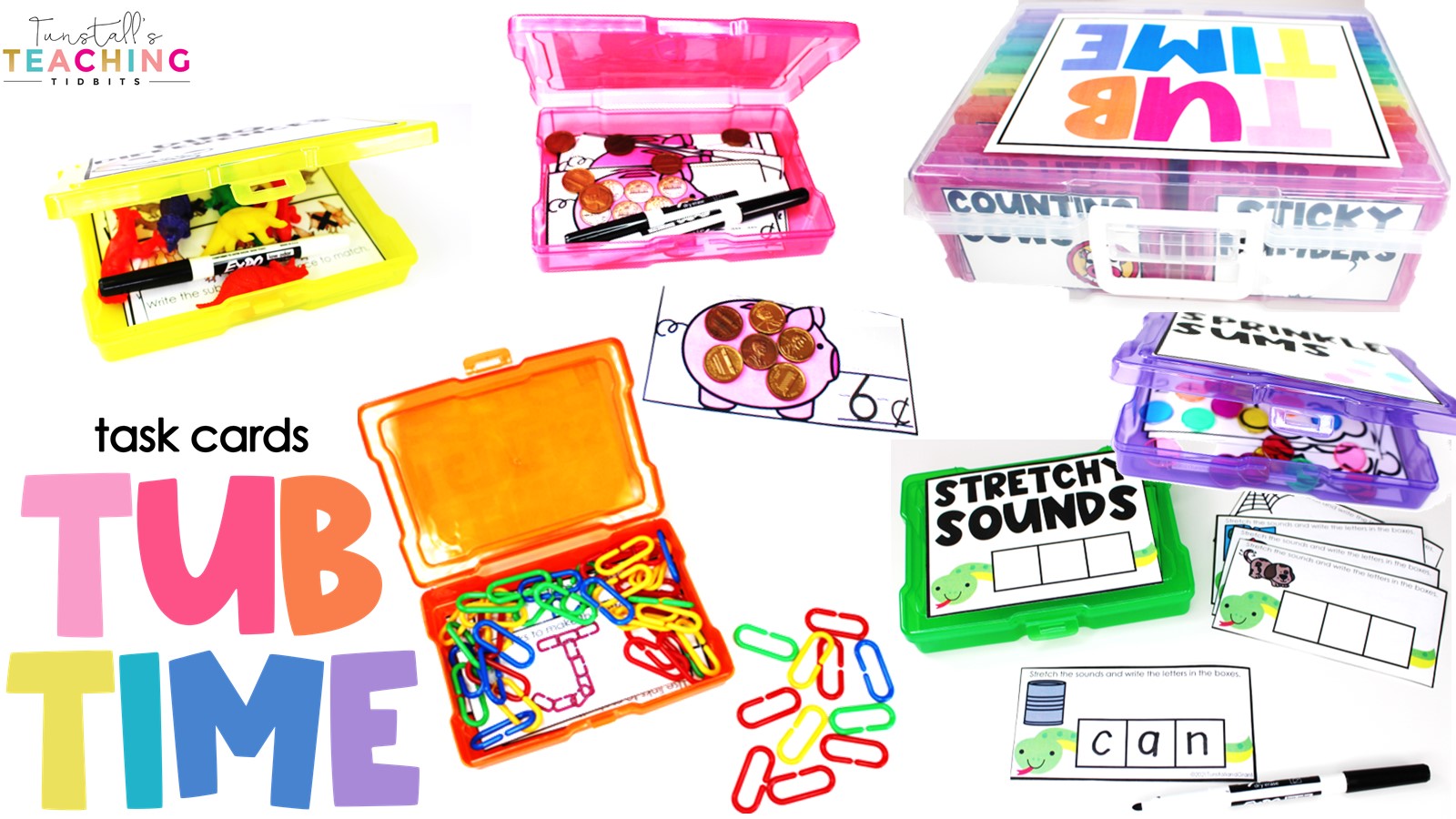
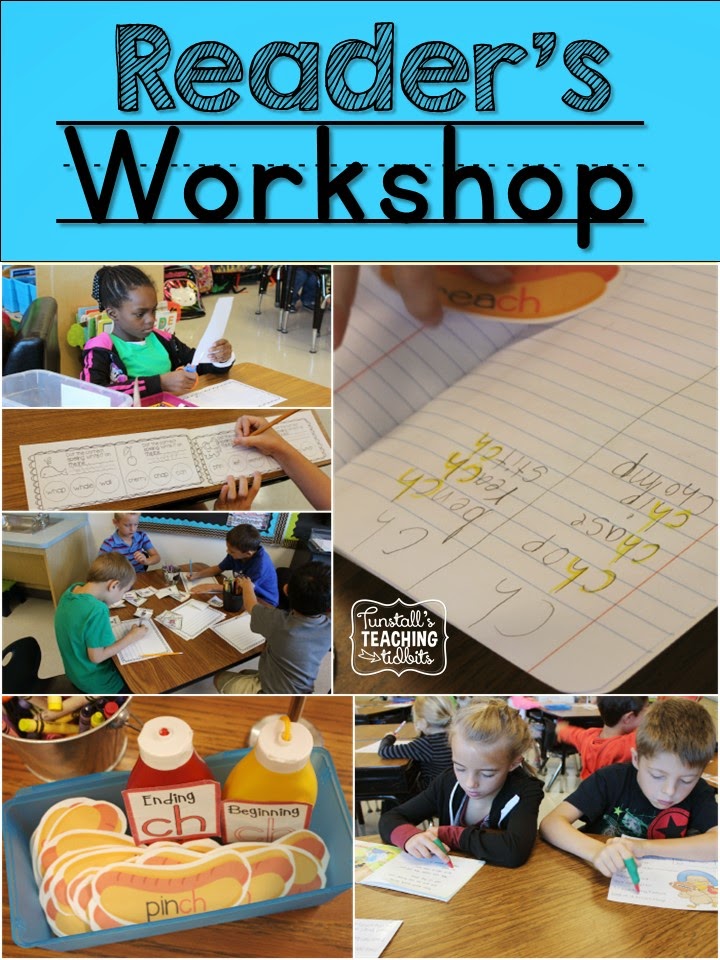
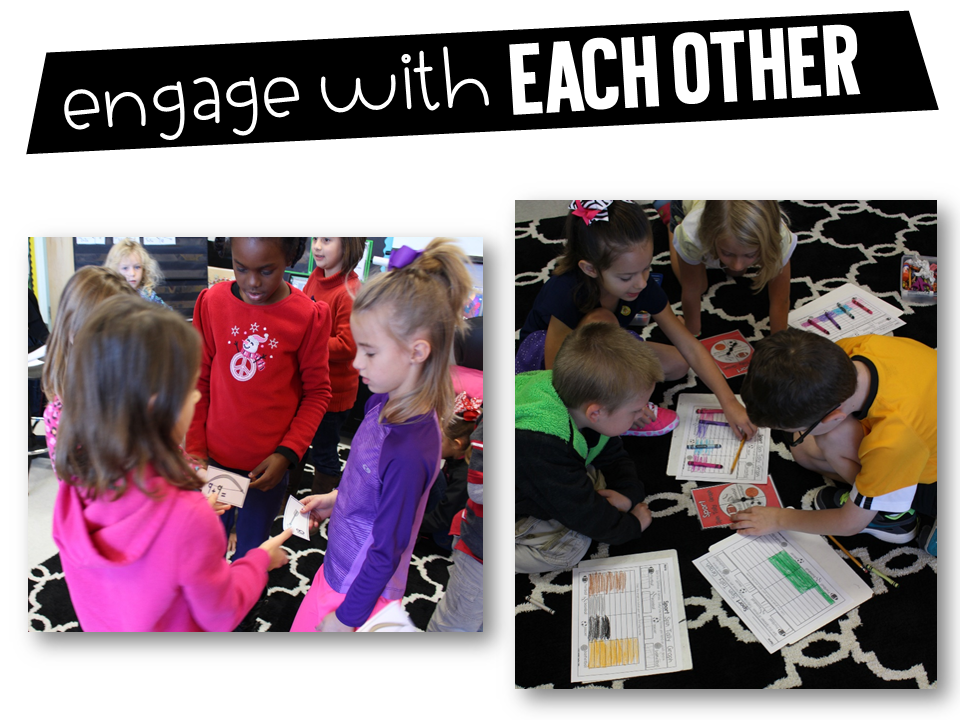
You.Are.Awesome! Thank you for sharing. I am currently at home, medical concerns for my kids…but posts like this remind me how much I miss teaching and being in charge of readers.
Thank you so much, Veronica. I appreciate your sweet words!! 🙂
Do you see every group everyday?
Which websites are free to use? I use epic right now, but would love more free sites for kids to listen to books.
Is there a specific way you introduce and explain the expectations for each station at the beginning of the school year?
When do you fit in instruction for grammar and writing skills? Also, I have students who go out for 30 minutes with the reading specialist, do your tier 2 and 3 students go out as well? If so what rotations do they miss?
I’m so glad I found this post because you literally have laid out exactly how I envisioned my literacy rotations working for my kindergarten class. How would you adjust this to work with an aid? In the past my aid has had their table for instruction as well. Also when do you fit in writing instruction?